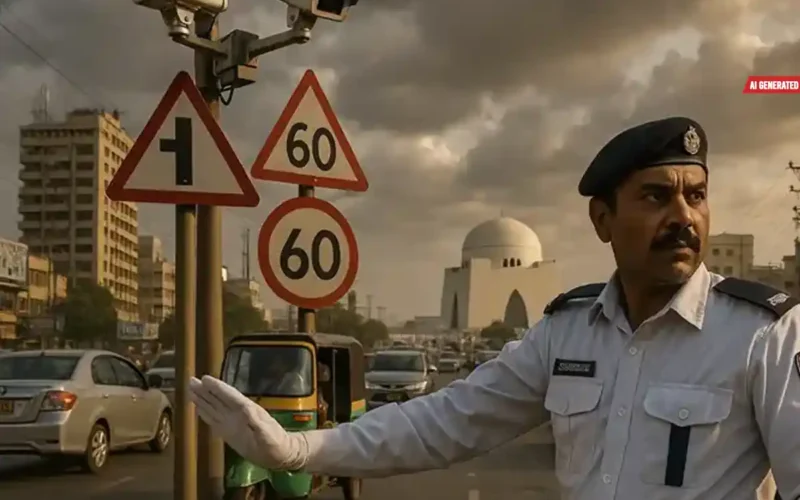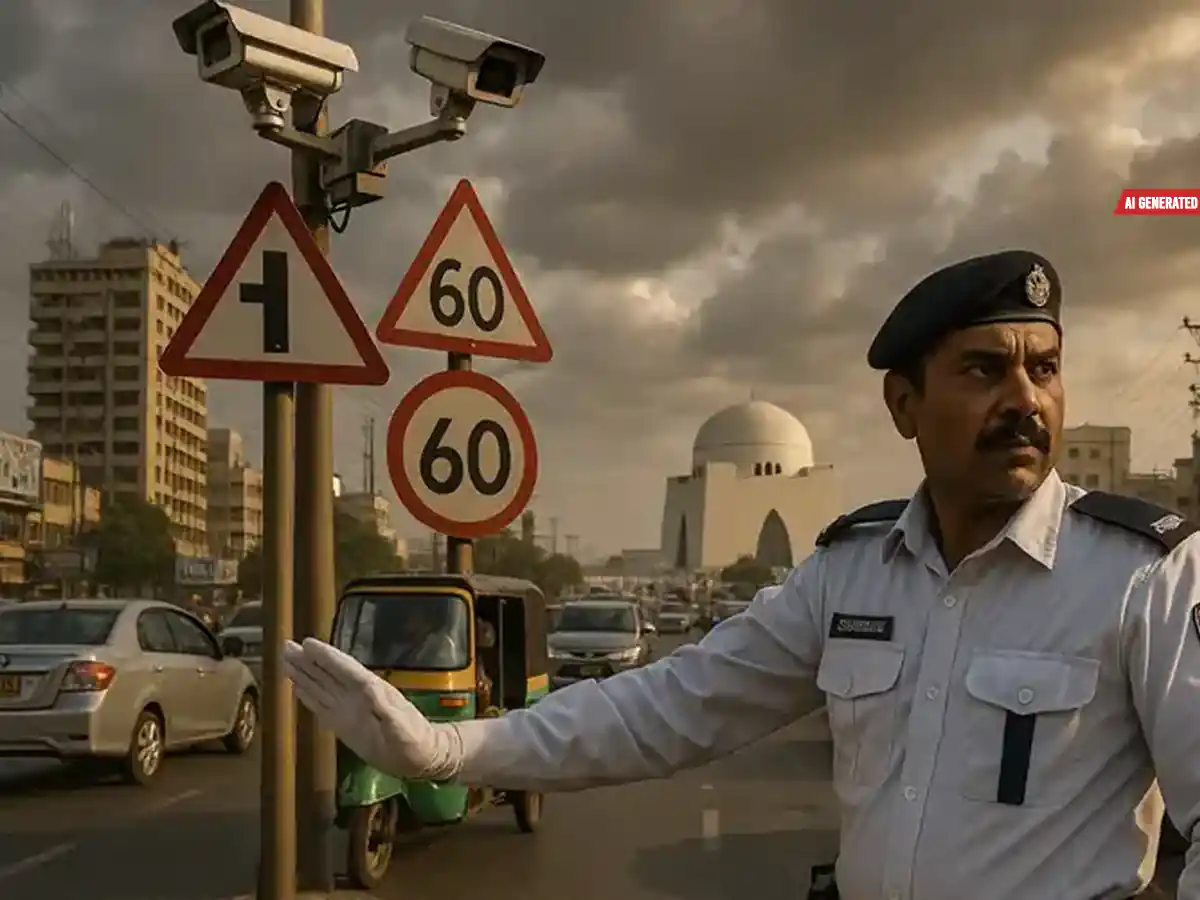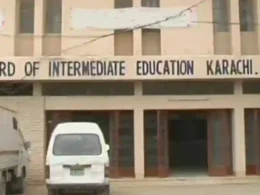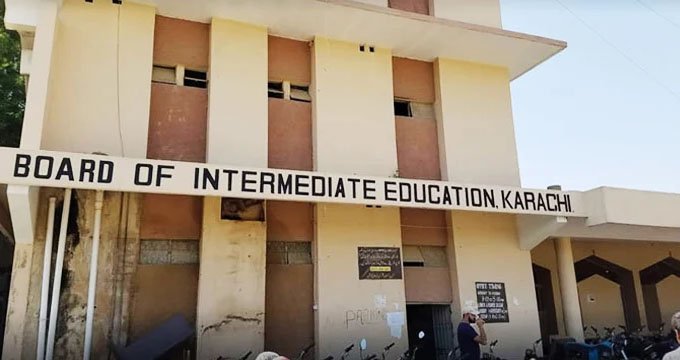Deputy Inspector General (DIG) Traffic Police Karachi Peer Muhammad Shah, while responding to concerns expressed over the issuance of exorbitantly high e-challans being issued to citizens, said, “Change is impossible without deterrence.”
He addressed concerns about high e-challans and explained that enhanced surveillance, digital monitoring, and disciplined enforcement were collectively improving Karachi’s traffic environment while gradually reducing fatal road accidents across the city’s busiest corridors.
Senior members of the Karachi Chamber, including President Muhammad Rehan Hanif and other office-bearers, attended the meeting, where the DIG briefed participants on key statistics and highlighted dangerous trends observed in Karachi’s road behavior.
Follow the Times of Karachi channel on WhatsApp
He noted that undisciplined driving had become deeply rooted over decades. Before digital enforcement, Karachi averaged three deaths per day in road accidents. After e-challans began, fatalities dropped to two daily, with only forty-six reported last month.
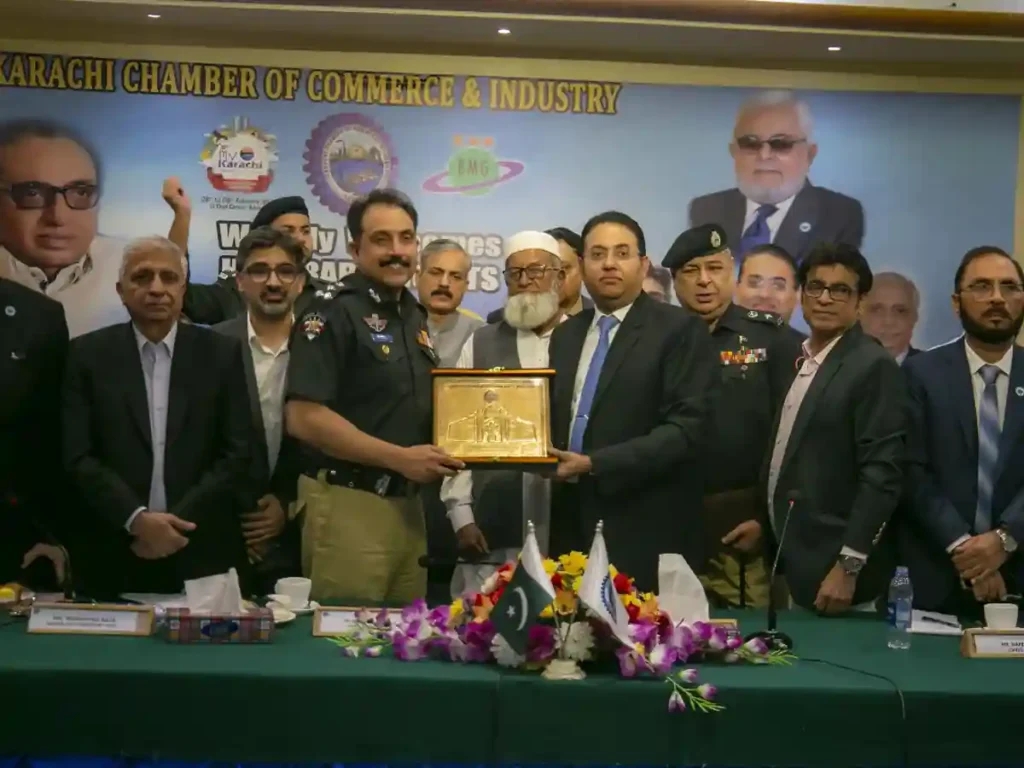
DIG Shah said that international systems determine penalties based on violations, not income levels. In alignment with global practices, first-time offenders can now obtain a complete waiver by visiting designated facilitation centers across Karachi.
He argued that reducing fines would undermine the deterrence principle, stating that law-abiding drivers deserve fairness, and weakening penalties would remove the fear of consequences required for improving overall road discipline.
READ: Karachi Traffic Police enforce tracker rules for dumpers and tankers
Discussing speed limits, he clarified that Shahrah-e-Faisal is not a motorway and cannot allow vehicles to exceed sixty kilometres per hour. He emphasized that compliance requires accountability through predictable and firm enforcement.
The DIG warned that hiding number plates now leads to FIR registration, as an extensive surveillance network is fully active on Shahrah-e-Faisal. From December, motorcycles must use dedicated bike lanes for smoother traffic flow.
He added that all excise departments are being interconnected to improve data tracking. Under the new points-based enforcement system, penalties will intensify once allotted driving points are fully consumed by repeated violations.
He said the Traffic Engineering Bureau must become operational to maintain signals. Heavy vehicle accidents rise in winter due to poor tires, and new fitness centers are being established to ensure stricter checks on dumpers and tankers.
Visit Times of Karachi website for the latest news-related content daily
Vice Chairman BMG Javed Bilwani highlighted Karachi’s failing signal system, noting that only thirty-nine of eighty-nine installed traffic signals work. He said Karachi ideally requires twelve hundred signals to meet urban needs.
He also questioned enforcement uniformity for vehicles entering Karachi from other provinces and recommended making the penalty-point system fully effective with license suspension after consistent violations below a defined threshold.
KCCI President Rehan Hanif acknowledged improvements in Karachi’s traffic order, noting reduced VIP culture and better enforcement. However, he said zebra crossings, signal systems, speed-limit signs and road encroachments still require urgent correction.
He assured the Chamber’s support for the e-challan system, emphasizing that it represents a fine for violations, not a form of taxation. He urged authorities to resolve broader urban management issues alongside enforcement.






